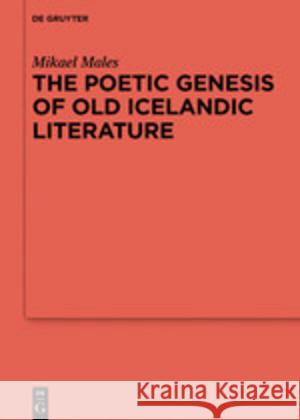The Poetic Genesis of Old Icelandic Literature » książka
The Poetic Genesis of Old Icelandic Literature
ISBN-13: 9783110641837 / Angielski / Twarda / 2019 / 361 str.
This book assesses the importance of poetry for the Old Icelandic literary flowering of c. 1150–1350. It addresses the apparent paradox that an extremely conservative form of literature, namely skaldic poetry, was at the core of the most innovative literary and intellectual experiments in the period. The book argues that this cannot simply be explained as a result of strong local traditions, as in most previous scholarship. Thus, for instance, the author demonstrates that the mix of prose and poetry found in kings’ sagas and sagas of Icelanders is roughly contemporary to the written sagas. Similarly, he argues that treatises on poetics and mythology, including Snorri’s Edda, are new to the period, not only in their textual form, but also in their systematic mode of analysis. The book contends that what is truly new in these texts is the method of the authors, derived from Latin learning, but applied to traditional forms and motifs as encapsulated in the skaldic tradition. In this way, Christian Latin learning allowed for its perceived opposite, vernacular oral literature of pagan extraction, to reach full fruition and to largely replace the very literature which had made this process possible in the first place.











